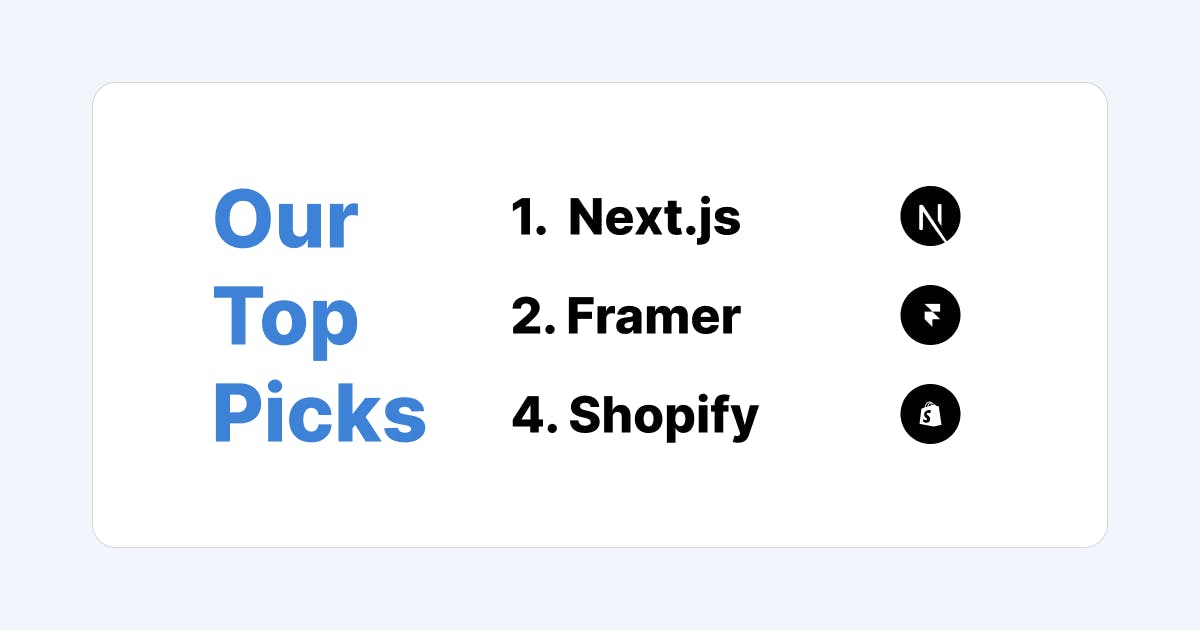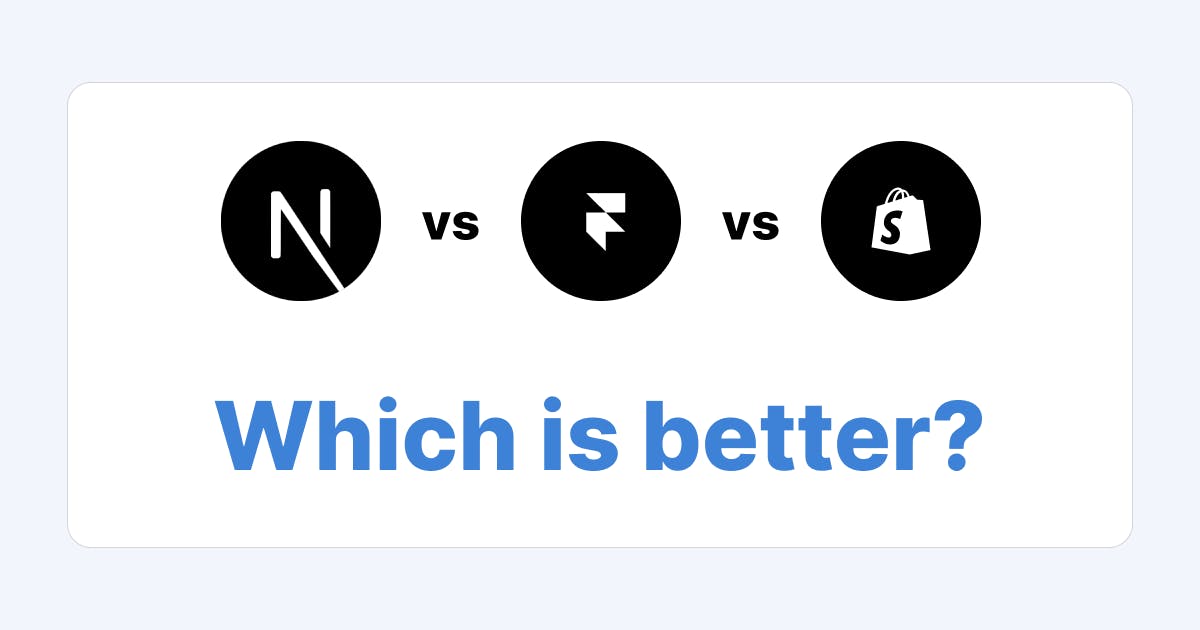Looking to build a website?
So you've started with a Google search and quickly get overwhelmed by all the different ways to build a website. Some people say to use a page builder platform, and some say you need to hire an agency. We will review all the platforms and see which is best for different scenarios.
We've used every builder/platform in the last decade and understand what's fluff vs what's helpful. We've built sites using WordPress/Elementor, Webflow, Framer, Wix, Squarespace, Shopify, Next.js, SvelteKit, PHP, and regular HTML/CSS/JS. We've used them all.
The top 3 picks for 2023
To start off our top 3 picks for 2023 are:
- Next.js
- Framer.com
- Shopify
With these 3 platforms, you can majority of your web needs in 2023. Let's get into how these 3 platforms differ now.

Next.js
Suppose you are tech-savvy or have a dev team like us, then Next.js is the way to go. You get the most flexibility out of any platform because you have direct access to the code, which allows you to set up/control the website exactly how you want it.
Pros:
- Built on top of React.js (many developers love React)
- Perfect for complex or dynamic web apps with very specific needs
- You can pretty much build any web app you can dream of
- If optimized correctly, it has some of the fastest page speeds in the industry (good for SEO)
- You can hook up any content management system you prefer
Cons:
- Requires experienced developer to work on it
- You have to be more deliberate and plan your page types and designs ahead of time using tools like Figma.
All in all, even with the con of requiring a developer, it's still a solid choice, and many small businesses actually use it or similar platforms built on top of React.js, even for their small business websites. If this type of platform interests you, reach out to us!
Framer
If you don't want to sacrifice using a page builder and want something similar to Figma + Elementor, then Framer is your best choice.
Pros:
- Design and prototype as you would in Figma
- Create advanced animations and repeatable components
- Collaborate easily with other team members
- Create custom code components for unique use cases
- Has a built-in content management system (CMS)
Cons:
- Limited to building brochure-style websites, not great for web apps
- Data is locked inside Framer; you can't easily access it from other tools or pipe data in
- Not the most beginner-friendly page builder
Using Framer is a great choice if you're a designer with some development experience. You can create some "hacks" to connect your site to other platforms, but it requires advanced integration knowledge (APIs). We currently offer it as a platform on which we can build your small business website!
Shopify
Starting an e-commerce business with Shopify has never been easier. The nice thing about Shopify is it can work as a "headful" or "headless" platform. This means you can use Shopify's page builder to build your website or have your website built using Next.js or Framer and have your products pulled into there via APIs.
Pros
- Used and loved by over a million businesses
- Flexible front-end solutions
- Handles all the hard parts of e-commerce for you
- You can customize your products to exactly your specs.
Cons
- Their themes/page builder can be restricting at times
- Scalable Local SEO isn't easy
- Creating promotional landing pages might be challenging
If these cons scare you, let us handle your e-commerce needs. We love working with Shopify's backend and hooking it up to something like a Next.js site. This gives us full control over the front end, and we can build pretty much anything you want with that kind of setup.
The verdict
Using any of these or a combination of these web platforms in 2023 will put you in a great spot for the future as things change ever so quickly. They all are pretty future-proof and scale well.
If you have any web development needs or aren't sure where to start, contact us, and we'll be more than glad to help you get set up for success.
